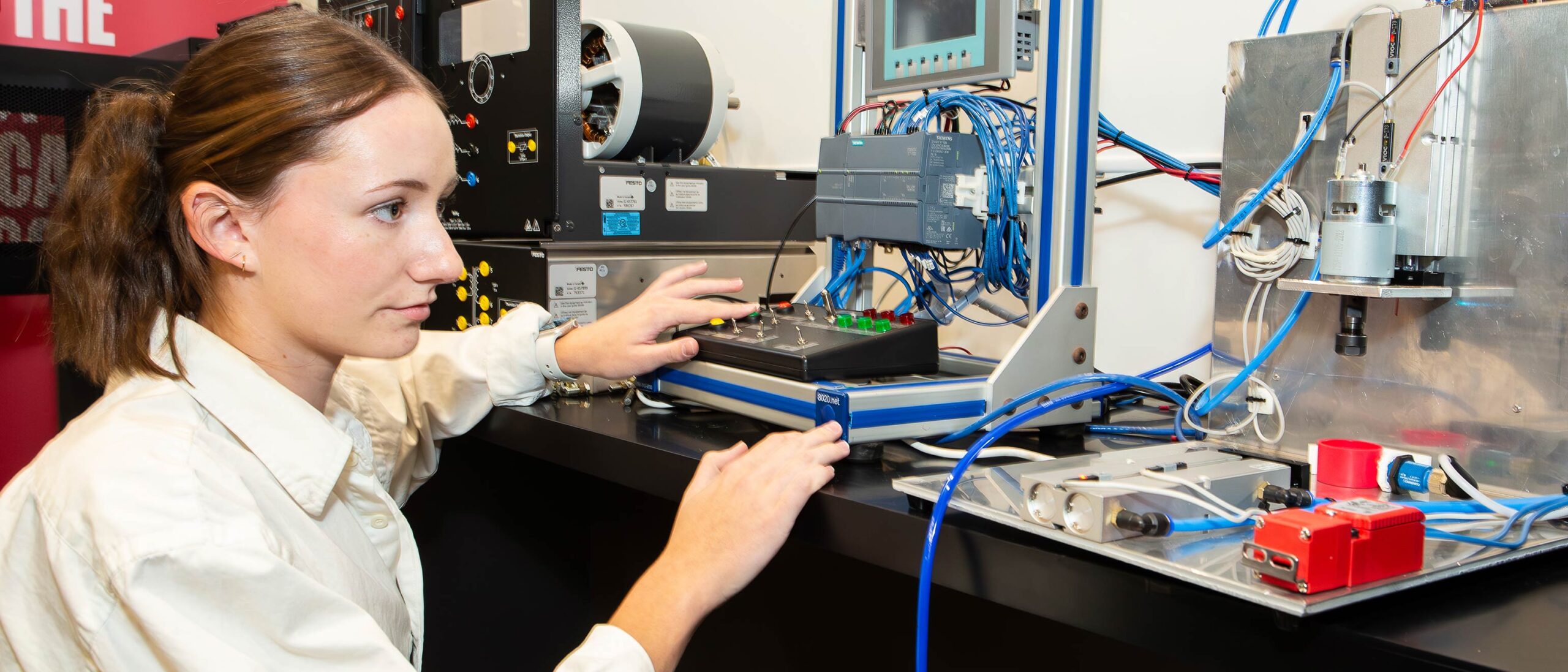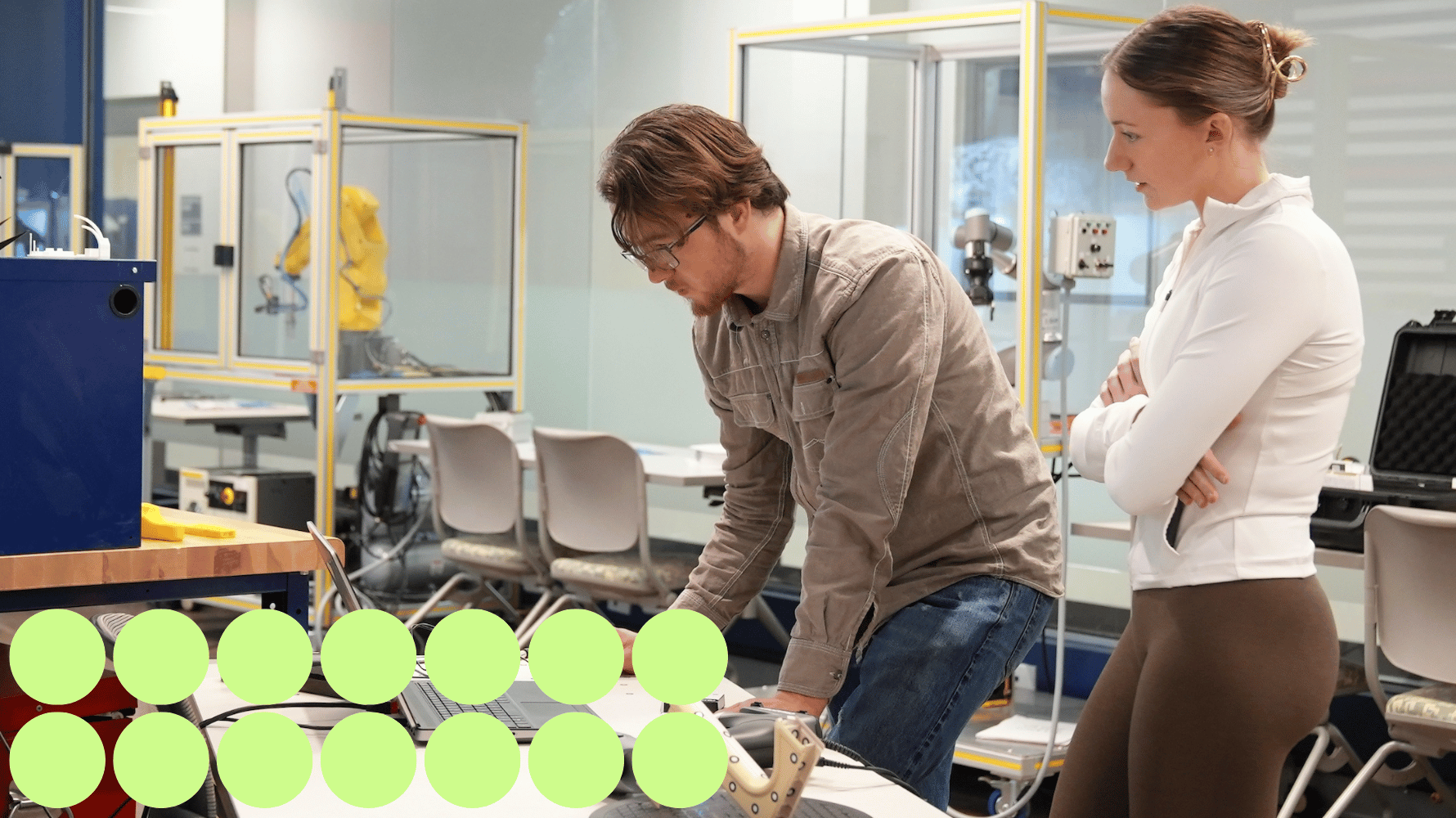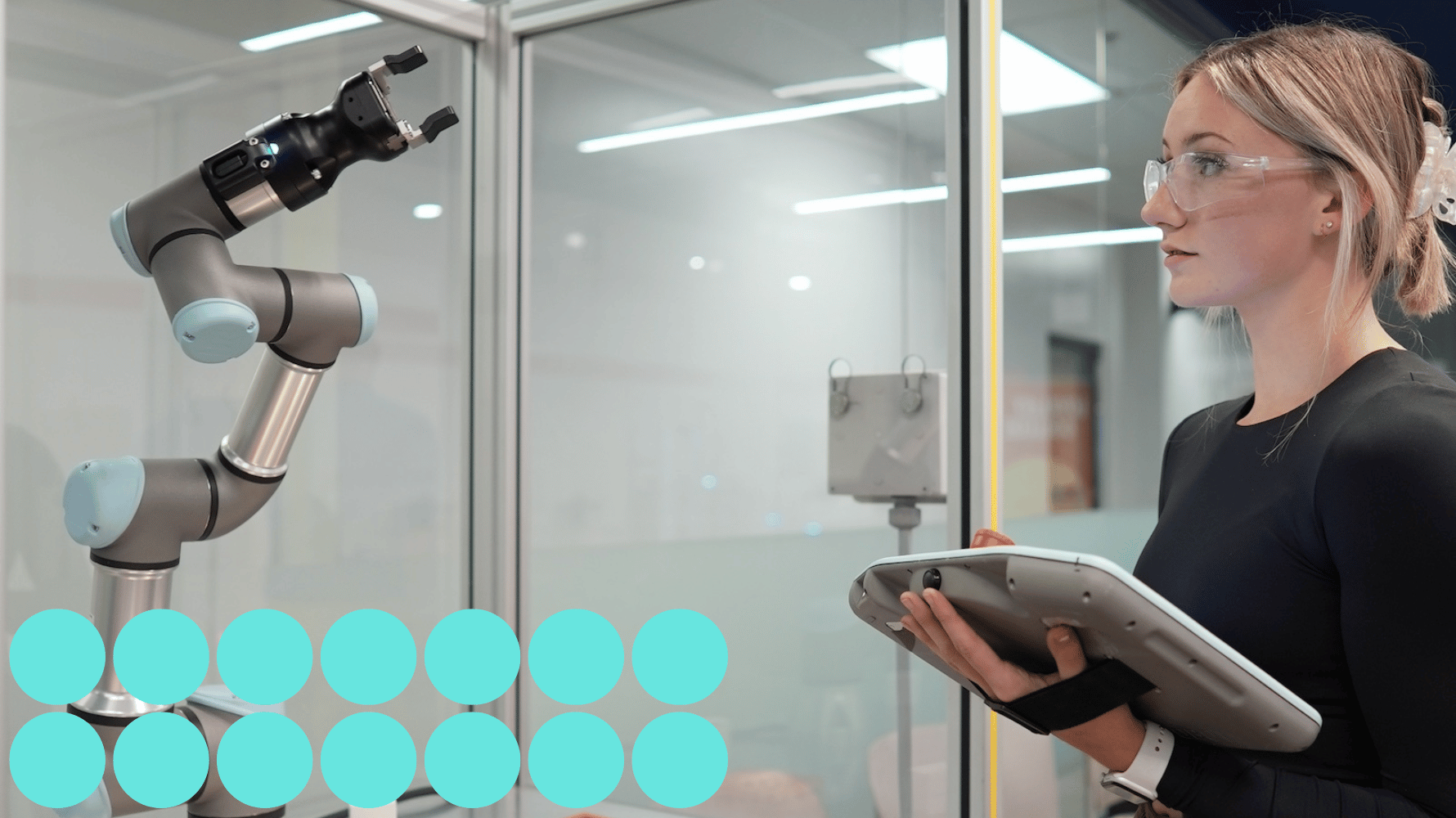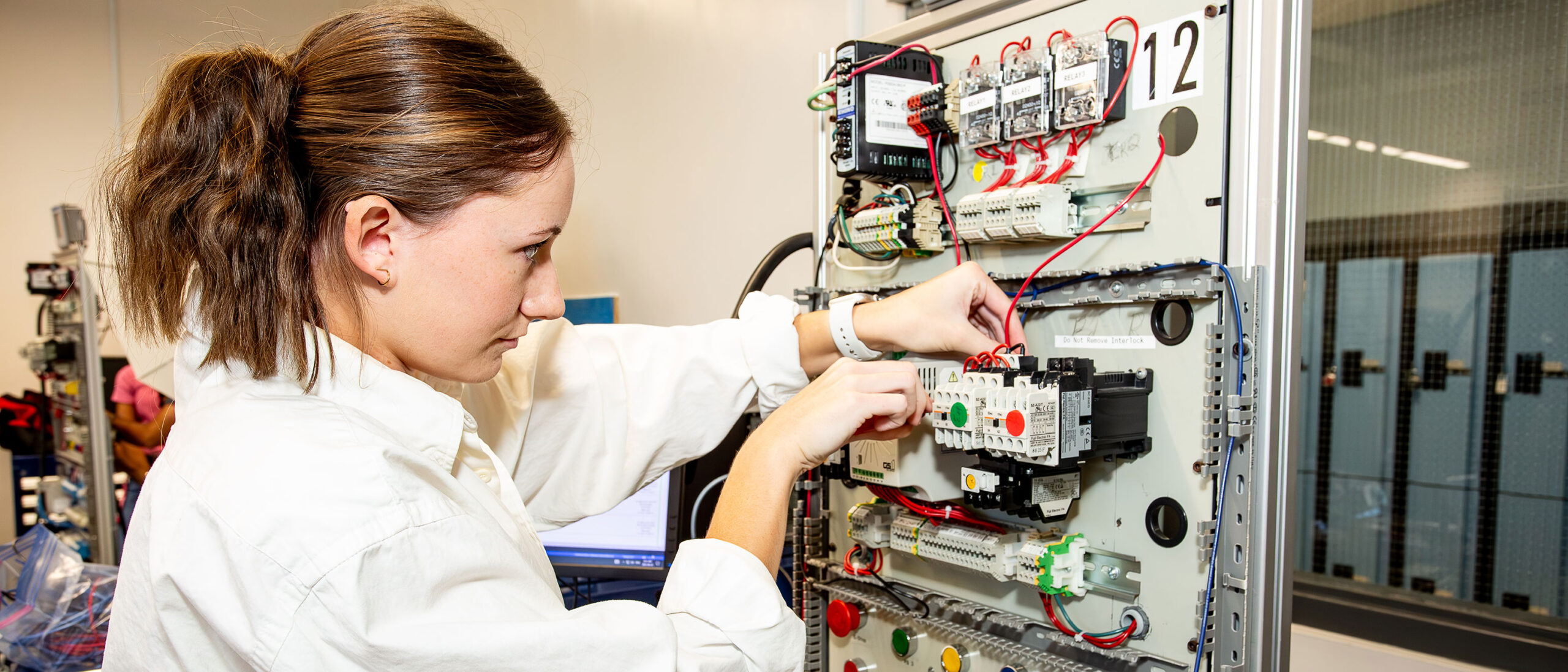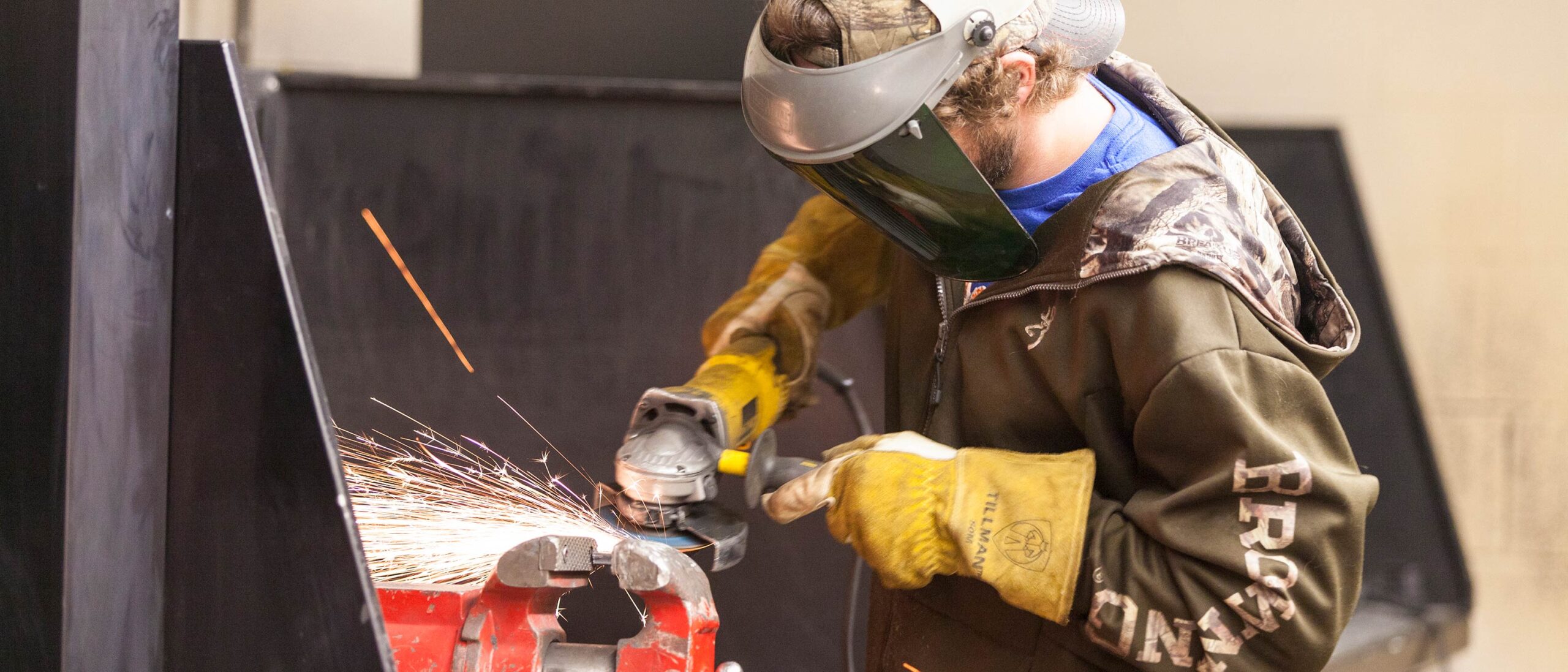Ministry-approved program title: Electromechanical Engineering Technician – Mechatronics
Find your career
Graduates of this program may play an integral role in:
- Testing, installing and maintaining automated systems and robotics and electrical systems.
- PLC programming and implementation.
- Supporting computer and electronic goods production.
- Developing and monitoring equipment in manufacturing operations.
- Computer and electronics production.
- Installing and maintaining electrical systems.
- Wholesale trade in machinery and equipment distribution.
- Consulting across industries to support business and the public sector.
- Prototype development.
Is it for you?
This program holds rewarding opportunities for students who:
- Are drawn to knowing how things work.
- Enjoy creative problem-solving.
- Get excited about working with and learning about new technology.

